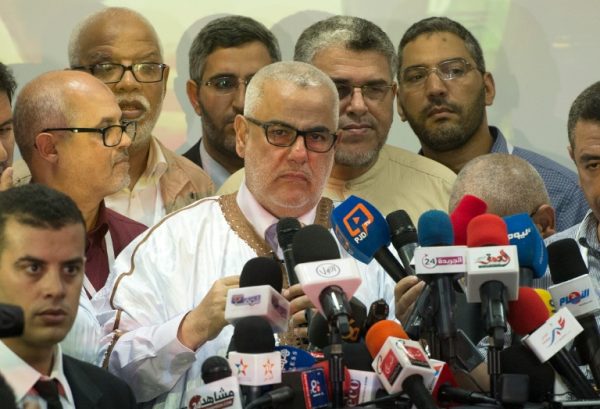
The Islamist Justice and Development Party (PJD) took 99 seats while the Authenticity and Modernity Party (PAM) — which had campaigned against the “Islamisation” of Moroccan society — took 80 with 90 percent of the vote counted, the Interior Ministry said.
Interior Minister Mohamed Hassad said the election was “transparent” and had gone well, rejecting accusations of voter fraud from both sides.
The PJD earlier issued a statement saying it was “very concerned about numerous reports of fraud being carried out by authorities” in favour of the PAM, and called on the interior ministry to “urgently intervene”.
PAM spokesman Khalid Adennoun declined to comment but said that his party had filed “50 complaints” of voting irregularities, some concerning the PJD in Tangiers.
An Islamist candidate was attacked and wounded outside a polling station in Rabat, according to local media.
A video shared on social networks also showed a man stuffing a ballot box, leading the PJD to file a complaint, media reported.
Participation was at 43 percent, or roughly 6,750,000 voters, Hassad said during a press conference in the capital Rabat.
Early turnout had been low in Rabat with many people waiting till after the weekly noon prayers to cast their ballots while others trickled to the polls after office hours.
To make life easier for the illiterate, who make up a third of Morocco’s population, the 30 parties in contention were marked on ballot papers with symbols such as a tractor or camel.
Full results will be announced later on Saturday but the Islamist party already has a comfortable lead and seems highly likely to head up the next government.
But real power will remain in the hands of King Mohammed VI, the scion of a monarchy that has ruled the North African country for 350 years.
Fighting corruption
The PJD came to power in 2011, months after massive street protests prompted concessions from the monarchy.
A new constitution transferred some of the king’s powers to parliament, at a time when autocratic regimes were falling in Tunisia, Egypt and Libya.
The PJD has won plaudits abroad for pushing an austerity programme that has helped overhaul public finances. The party argued that a second term would allow it to press ahead with social reforms and tackle corruption.
“The PJD like to portray themselves as the clean party, the one that will fight corruption,” saidFRANCE 24’s Chris Moore, reporting from Casablanca.
But the party’s task has been complicated by the unstable world economy and a drought this year that has hit Morocco’s vital agricultural sector and sent growth plummeting.
It has also faced a string of scandals within its ranks including a drugs bust, a land-grab deal and the suspension of two vice presidents found in a “sexual position” on a beach.
The opposition PAM, formed in 2008 by a close adviser to the king, had hoped to take advantage in the polls.
Headed by Ilyas El Omari, it has poured enormous resources into a campaign criticising the government’s economic record as “catastrophic” and pledging to roll back the “Islamisation” of society.
The PAM, which wants to legalise cannabis, also aimed to bring more women into parliament.
A list system and an electoral threshold that has been halved from six to three percent could hand small parties a key role in forming the next government.
The PJD and the PAM have ruled out joining forces in a grand coalition.
Under the 2011 constitution, the king appoints a prime minister from the biggest party in parliament once the election results have been announced.
(FRANCE 24 with AFP)

Leave a Reply
You must be logged in to post a comment.